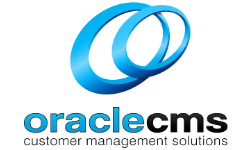Agile Contact Centre
An Agile Contact Centre describes a way of designing, working and leading contact centres that focuses on collaboration, transparency, trust and making customers the number one priority.
This combines a range of sustainable practices and mindsets that create the ability to adapt rapidly to change and builds high-performing, employee-centric cultures.
What is an Agile Contact Centre?
This describes a way of designing, working and leading contact centres that focuses on building an adaptive culture. The best way to think about this is like the automatic software updates to the operating system on your phone.
With each update, you get a better, more capable phone, small updates, regularly, with very little downtime.
So, if this was your culture, you would have an advantage, you would always be ready.
It may not sound that sexy, but being ready means that no matter what change, disruption or goal is set, your team will be able to sense, adapt and respond to the challenge.
And it goes one step further, these teams are constantly learning about how they adapt. And this is the real gold, resulting in continual updates to their operating system, making them more adaptive over time.
So, when a change comes to your team, rather than being derailed each time, you can keep moving towards your goals, happier and healthier.
And we believe the last 2 points can coexist with the achievement of business goals, rather than being traded off.
Traits of adaptive, agile contact centres:
- High trust, psychologically safety teams
- Transparency
- Collaborative – we win and lose together
- Authentic
- Curious and learning
- Creative
- Experimental – failure is celebrated
- Focus on personal development
Adaptive teams don’t have these as posters on a wall, they are woven into the fabric of how they work, relate and think.
This is messier than it is orderly, less planned than you might like, but the result is hands down, the best culture you can work in.
The key benefits of having an agile contact centre are:
- The ability to adapt quickly to change, change is seen as a positive and embedded successfully, resulting in greater business and customer benefits.
- Higher customer satisfaction and loyalty as a result of fewer repeat calls and removing unnecessary calls altogether.
- Higher employee engagement and lower attrition as a result of employee experiences designed around your unique value proposition.
- Higher performance through better collaboration and a shared view of success.
- Lower operating costs due to fewer calls, less rework, lower recruitment costs.
Creating this culture combines a range of sustainable practices and mindsets that create the ability to adapt rapidly to change.
5 things you can do today to build an adaptive, agile contact centre:
- Flexibility: provide as much flexibility on where and when your team can work. This will reduce absenteeism, attrition and help you attract the best people in the market.
- Learning: run Retrospectives regularly to uncover improvement opportunities. Teams that are more engaged in how to improve the environment they work in, feel more accountability, leading to better performance outcomes.
- Trust: increase psychological safety, do a quick pulse check to see how comfortable people are in speaking up to share ideas, report mistakes and provide feedback up the line. Cultures with high psychological safety have been proven to be higher performing because they can overcome challenges and disruptions faster and avoid the rework that comes with mistakes.
- Protecting time for connection: in a busy contact centre the first thing that will be traded off is time for people to come together, 1-1’s, team meetings and socialising. The ability to come together and get personal is one of the most valued activities in a work from anywhere world, it avoids isolation and shows that you value your people for what they can bring to the culture, rather than simply doing the job.
- Increase feedback: in particular, peer to peer feedback on what people do well. The modern contact centre is a busy place, and customer interactions can be tough, making resilience critical, so people can bounce back quickly and safely. Providing positive feedback has been shown to improve retention and employee satisfaction by up to 30%, it works by giving people the energy and reason to overcome challenges they face every day.
Bringing to life the traits of adaptive cultures is at the heart of an agile contact centre, it’s an ongoing commitment from leaders to create a humanistic, customer-centric climate where everyone’s voice and contribution is valued.
Upcoming ACXPA Member Bites Sessions
Short, sharp interviews and presentations on specific topics to fast-track your knowledge!
The ACXPA Member Bites are only available to ACXPA Members!
ACXPA Members can watch all the ACXPA Member Bites at any time in their Video Library. Discover which membership is right for you >

IVR Best Practice
Over 90% of contact centres are using an IVR (Press 1 for this, press 2 for that), and we've encountered many contact centres with over four layers of options for customers to select from. In this session, Nadine will be sharing some best practice tips on IVR design for 2024.
Presented by Nadine Power, Client Success Manager, VERSA Connects (and ACXPA National Advisory Board Member)
More sessions announced soon!
(If you're interested in speaking at one of our events, click here to learn more >)


















